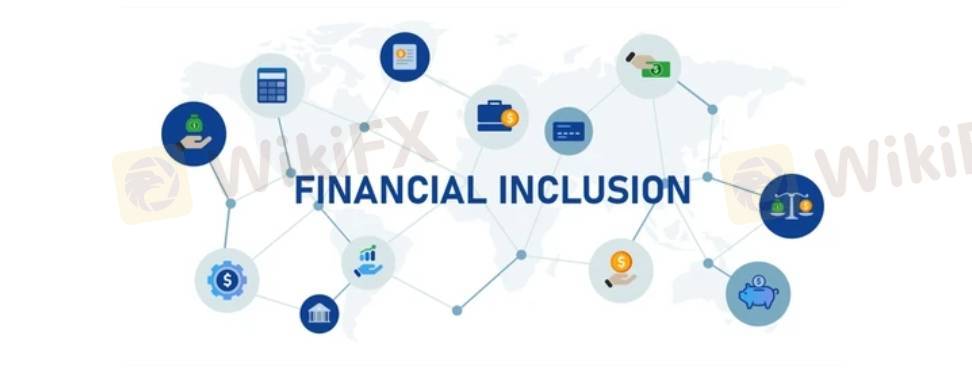
2025-02-12 21:28
IndustriFinancial Inclusion: Access to Financial Services
#Firstdealofthenewyearastylz
Challenges to Financial Inclusion
Lack of Financial Literacy – Many people, especially in developing countries, lack the knowledge to effectively use financial services.
Inadequate Infrastructure – Poor internet connectivity, lack of banking infrastructure, and regulatory barriers limit access to financial services.
Trust Issues – Some communities distrust financial institutions due to fraud, high fees, or lack of transparency.
Gender Inequality – Women in many regions face barriers to financial access due to cultural and legal restrictions.
Policy Recommendations for Enhancing Financial Inclusion
Strengthening Digital Financial Services – Governments and financial institutions should invest in mobile banking, digital wallets, and FinTech solutions.
Expanding Financial Literacy Programs – Educating people about financial management and digital banking is essential.
Regulatory Support and Consumer Protection – Policies should promote fair access, prevent fraud, and ensure financial stability.
Encouraging Public-Private Partnerships – Collaboration between governments, banks, and FinTech companies can enhance financial access.
Empowering Women and Marginalized Groups – Special programs should target women, rural populations, and small businesses to increase participation.
Conclusion
Financial inclusion is a key driver of economic growth, fostering entrepreneurship, reducing poverty, and improving financial stability. By expanding access to financial services, countries can unlock economic potential and ensure sustainable development. However, addressing challenges such as financial literacy, digital infrastructure, and regulatory barriers is crucial for maximizing its impact.
Suka 0

FX2804747192
Sàn giao dịch
Diskusi populer
Industri
СЕКРЕТ ЖЕНСКОГО ФОРЕКСА
Industri
УКРАИНА СОБИРАЕТСЯ СТАТЬ ЛИДЕРОМ НА РЫНКЕ NFT
Industri
Alasan Investasi Bodong Tumbuh Subur di Indonesia
Industri
Forex Eropa EURUSD 29 Maret: Berusaha Naik dari Terendah 4 Bulan
Analisis pasar
Bursa Asia Kebakaran, Eh... IHSG Ikut-ikutan
Analisis pasar
Kinerja BUMN Karya Disinggung Dahlan Iskan, Sahamnya Pada Rontok
Klasifikasi pasar

Platform

Pameran

Agen

Perekrutan

EA

Industri

Pasar

Indeks
Financial Inclusion: Access to Financial Services
 Hong Kong | 2025-02-12 21:28
Hong Kong | 2025-02-12 21:28#Firstdealofthenewyearastylz
Challenges to Financial Inclusion
Lack of Financial Literacy – Many people, especially in developing countries, lack the knowledge to effectively use financial services.
Inadequate Infrastructure – Poor internet connectivity, lack of banking infrastructure, and regulatory barriers limit access to financial services.
Trust Issues – Some communities distrust financial institutions due to fraud, high fees, or lack of transparency.
Gender Inequality – Women in many regions face barriers to financial access due to cultural and legal restrictions.
Policy Recommendations for Enhancing Financial Inclusion
Strengthening Digital Financial Services – Governments and financial institutions should invest in mobile banking, digital wallets, and FinTech solutions.
Expanding Financial Literacy Programs – Educating people about financial management and digital banking is essential.
Regulatory Support and Consumer Protection – Policies should promote fair access, prevent fraud, and ensure financial stability.
Encouraging Public-Private Partnerships – Collaboration between governments, banks, and FinTech companies can enhance financial access.
Empowering Women and Marginalized Groups – Special programs should target women, rural populations, and small businesses to increase participation.
Conclusion
Financial inclusion is a key driver of economic growth, fostering entrepreneurship, reducing poverty, and improving financial stability. By expanding access to financial services, countries can unlock economic potential and ensure sustainable development. However, addressing challenges such as financial literacy, digital infrastructure, and regulatory barriers is crucial for maximizing its impact.
Suka 0
Saya juga ingin komentar
Tanyakan pertanyaan
0Komentar

Belum ada yang berkomentar, segera jadi yang pertama

Tanyakan pertanyaan
Belum ada yang berkomentar, segera jadi yang pertama